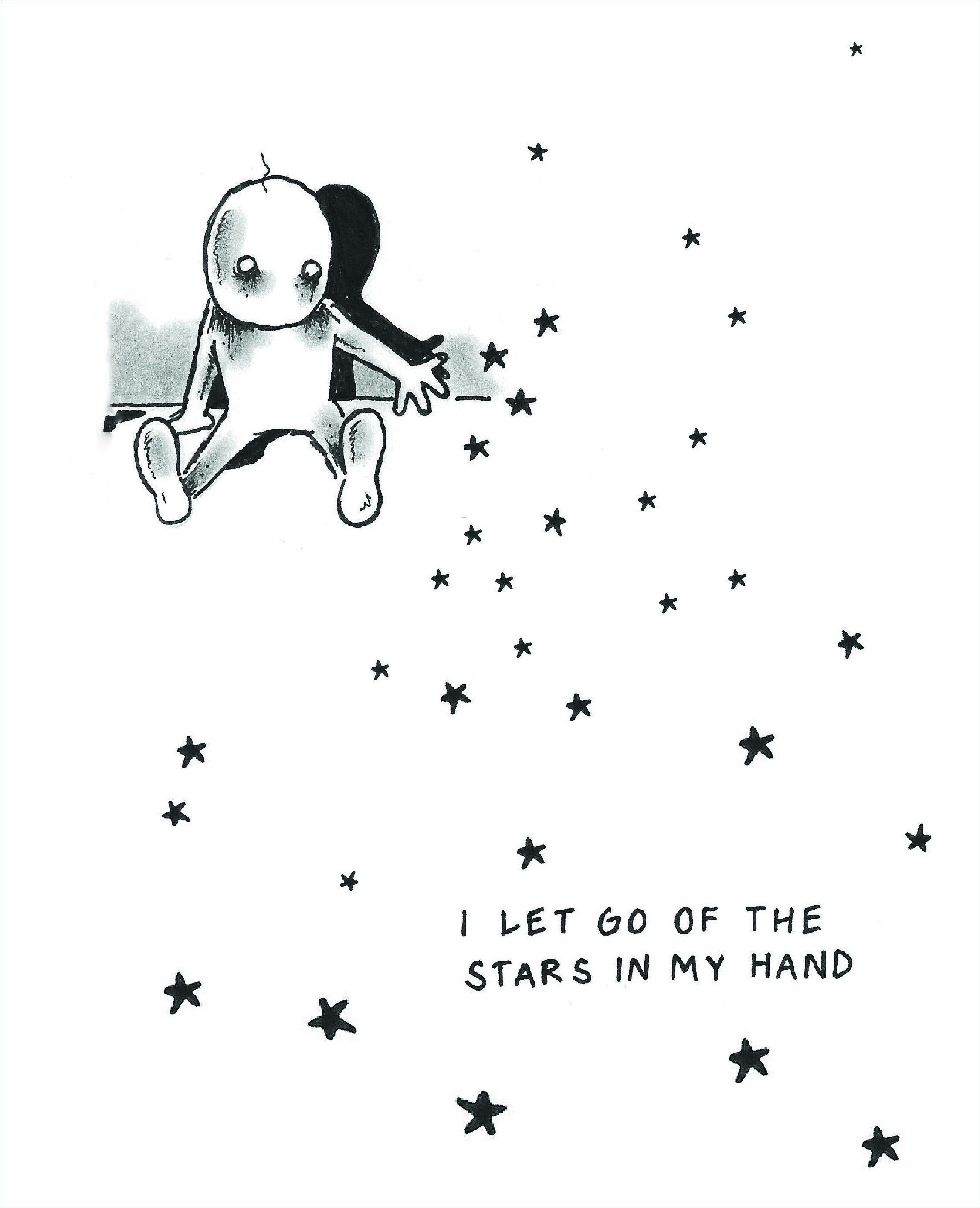When I was a junior in high school, I liked a boy called G. I was too shy to ask him if he liked me the way I liked him, so I gave him my Enya CD before class one day, because I had overheard him saying he liked her music.
He smiled and took it, but never really said if he liked me or even the album and I have a scar on my right forearm from the day I drove to that park somewhere between where I lived and didn’t and cut my skin until I felt touched by something.
Grade ten in high school and I am told by my best friend that while he was in the gym locker room, a bunch of other boys were making fun of me. They said they wished I had just killed myself already and I began to wonder why my friend was relaying this to me. He said, “I defended you,” because he liked me, even though no one else did. Four more scars were born soon after.
First grade. A boy called D passes a note to me via three other people and asks me if I like him back. He gives me a choice: Circle YES or NO or MAYBE. I circle all three; even then, I had a difficult time making up my mind.
Nowadays, we are LIKED at least once a day, sometimes ten or thirty depending upon how often we ask through typed-up messages and photographs. We unravel our scars, dig them out like time capsules and put them up onto our computer screens, so that someone will press a button and deliver validation we’ve grown to thirst for
Nowadays, we walk around with instant validation. All one has to do is post words and wait.
LIKE.
LIKE.
LIKE.
Two minutes pass and you’ve acquired three and then two more and suddenly your lack of employment or depleted bank account or untreated-but-diagnosed depression does not matter.
You. Are LIKE’d. Simply because you posted words above a button making it very easy for others to press it.
You tell people you have grown sick or gone to hospital or stopped eating or what you are eating or how you sit or how you lean or the delicate drip of your nose or who you are dating.
You tell people about what you just did or what you are about to do or what you plan to do next week.
LIKE.
LIKE.
Nineteen years of age, I am swallowing a boy’s body part that does not feel safe or comfortable in my mouth. He did not ask me if I LIKED this.
Year twenty-seven of living and I leave a place that I never recorded after my body is broken into once again and there is no button, but if there were I would not press it.
Seven years later and I try it out. I gather up some words like a bouquet of flowers stolen out of someone’s front yard. I take these words and thrown them onto a computer screen. And I wait. And I hold my breath until the first….
LIKE.
It feels good. Adrenaline of acceptance rushes through me and suddenly it does not matter how much I meant what I wrote. It doesn’t matter that I never spell-checked or fact- checked. All that matters is someone LIKE’d it, which means someone LIKE’d me.
And all my scars began to faint away or I pretended they had and it did not matter I was alone or lonely or hungry or still depressed. Someone pressed that button for me.
LIKE.
I take all these LIKEs and crush them up. I press down firmly to smooth out the hard bits. Like gristle. Suddenly, I’ve got a fine powder of LIKEs. I lean toward them as though about to whisper something worthy of a click to them. I get so close, I almost blow some of the LIKEs away. Then, I glide this dust toward my nose and snort them up like the drug it really is. I inhale. My chest beckons. My ribs climb themselves. I inhale every last drip of LIKE that exists and revel in the aftertaste of anticlimactic emptiness.
************
OUT NOW: Aimee Herman –
(great weather for MEDIA, 2014)
*Photo of Aimee Herman by Ryo Josephs








